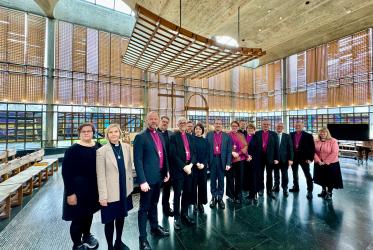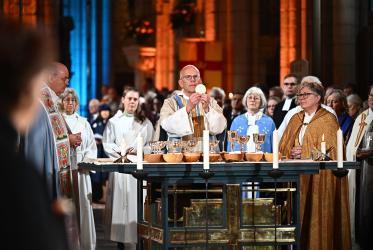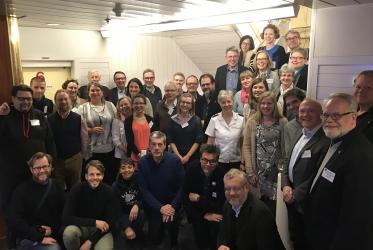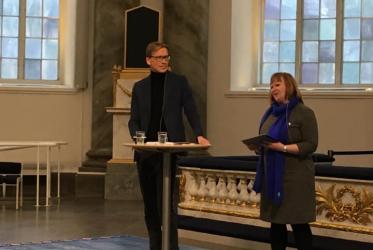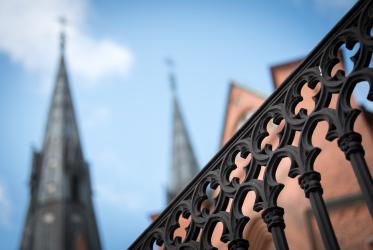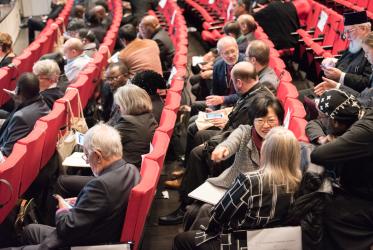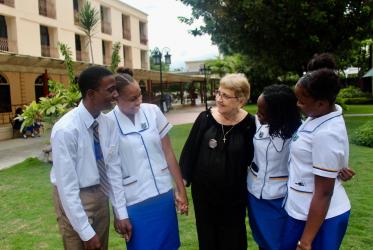Displaying 1 - 20 of 45
Uppsala 1968: The times, they were a’changing
06 September 2022
Driven by God’s grace and a sense of duty
05 November 2020
In a COVID-stricken world, “everyone is important”
23 October 2020
In the Bahamas, “some things are beyond our understanding”
21 October 2019
WCC President Wejryd: ‘Water, in many ways, represents God’
27 September 2019
WCC pays tribute to ecumenist pioneer
08 May 2019
Ecumenism is a sense of belonging
08 February 2019
WCC Executive Committee envisions future for one ecumenical movement
08 November 2018
WCC Executive Committee approves Communication Strategy
08 November 2018
WCC moderator, general secretary address Executive Committee
02 November 2018
WCC Executive Committee convenes in Uppsala, Sweden
01 November 2018
“If this is the ecumenical movement I want to be in!”
11 October 2018
Linette Vassel: “We need to examine power more deeply as women”
03 October 2018
#WCC70 hymns resonate in Ecumenical Centre Chapel
02 October 2018
